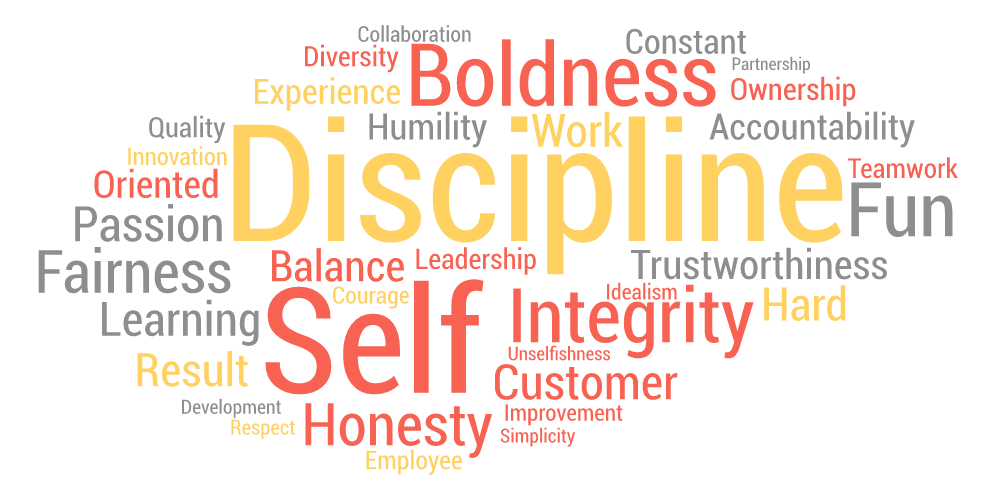Values
4.2 Values


Values refer to stable life goals that people have, reflecting what is most important to them. Values are established throughout one’s life as a result of the accumulating life experiences and tend to be relatively stable (Lusk & Oliver, 1974; Rokeach, 1973). The values that are important to people tend to affect the types of decisions they make, how they perceive their environment, and their actual behaviours. Moreover, people are more likely to accept job offers when the company possesses the values people care about (Judge & Bretz, 1992; Ravlin & Meglino, 1987). Value attainment is one reason why people stay in a company, and when an organization does not help them attain their values, they are more likely to decide to leave if they are dissatisfied with the job itself (George & Jones, 1996).
You are working for a profitable company that excels in its industry. But something is not right. Why is it you don’t feel engaged and excited about your job? Instead of excelling and loving your job, it is just a “job” and you continue to work for the company only because of the money. What would it be like if you went to work each day and not only got the salary you deserve but you loved the job you were doing?
Research has shown that when you match your personal values to the values of the Company there is synergy. Employees are happier and more engaged. The values of a Company underlie the purpose and drive to move forward. The values are the “Why” that make a difference. They lead to impact and performance for employees.
When business objectives become a personal matter, a closer connection is made. Employees feel they are part of the bigger picture and have a reason to work hard and produce. Remember, both internally to their teammates and to the public.
So what values in a company make a difference for you? Is it strictly skill driven and hard work? Or is it the right mix of both skills and developing and recognizing your people?
Ask yourself. What values does your Company embrace? Is it Collaboration, Trust and Communication? Or is it Innovation, Drive and Intelligence? What if your company had the right mix all six elements?
When there is Trust, employees feel safe. You understand the purpose and have a greater drive to see the company succeed.
With Collaboration, teams work together. Ideas are created and employees become part of the greater whole. They know the work they are doing will make a difference.
With open Communication, people talk about what is important and what is needed in an organization. With effective communication you tear down the walls to any misunderstandings and negativity that can foster when teams don’t know the direction.
With Innovation, companies excel and strive to create new and better ideas. It is with creativity that organizations continue to tweak and improve, to become a more profitable business.
Drive is what gets you up in the morning. It is the desire to constantly succeed and move past what is in the way and not working.
Intelligence is always needed. But when the leader is intelligent, has strong people development skills and knows how to motivate and mentor others, there is a winning formula in an organization.
Value congruence refers to the extent to which personal values are similar to the surroundings – which could be the indivdiual’s employer. It has been used to explain why subordinates are willing to follow their leader and show their loyalty and support (Burns, 1978; Shamir et al., 1993; Klein and House, 1995). The higher the value congruence , the higher the job satisfaction, loyalty, organizational citizenship and lower the stress and turnover.
The values a person holds will affect his or her employment. For example, someone who has an orientation toward strong stimulation may pursue extreme sports and select an occupation that involves fast action and high risk, such as fire fighter, police officer, or emergency medical doctor. Someone who has a drive for achievement may more readily act as an entrepreneur. Moreover, whether individuals will be satisfied at a given job may depend on whether the job provides a way to satisfy their dominant values. Therefore, understanding employees at work requires understanding the value orientations of employees.

